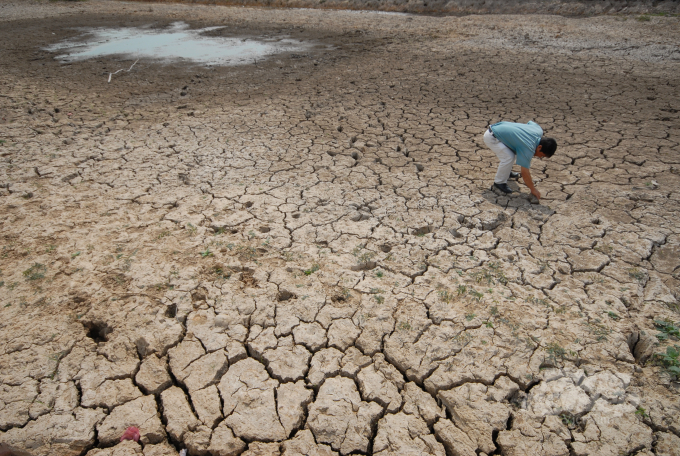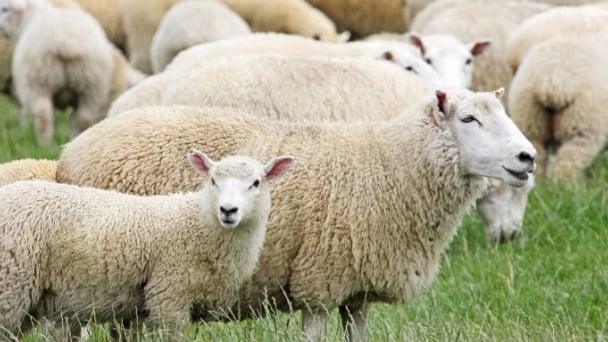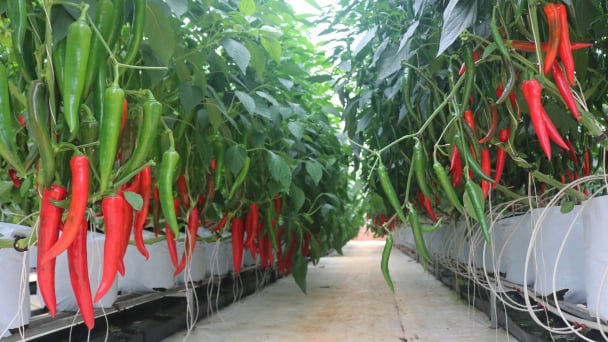June 2, 2025 | 22:34 GMT +7
June 2, 2025 | 22:34 GMT +7
Hotline: 0913.378.918
June 2, 2025 | 22:34 GMT +7
Hotline: 0913.378.918

Draught in the Mekong Delta affected by climate change. Photo: Le Hoang Vu.
A finding officially released on August 30 in Singapore highlights a key challenge with regional food production - chiefly that a significant number of growers in Southeast Asia’s largest agricultural producing countries are concerned with the impact of climate change (68.5%).
This finding, part of new research titled the 2021 ASEAN Farmer Sustainability & Resilience Study, was conducted by leading agricultural and animal health market research company Kynetec and carried out in the first quarter of 2021.
CropLife Asia contracted with Kynetec to conduct the survey among 525 corn, rice, fruit and vegetable farmers across Indonesia, the Philippines, Thailand and Vietnam.
The United Nation’s Intergovernmental Panel on Climate Change (IPCC) recently released a report warning against the effects of climate change and calling for rapid actions in global cooperation. The report was referred to by UN Secretary General Antonio Guterres as “code red for humanity” and has spurred additional discourse on how society can support more aggressive climate change action.
“Farmers across Southeast Asia are facing increasing challenges that threaten their livelihood, food supply chain resiliency, and the sustainable supply of safe and nutritious food on which we all depend,” said Dr. Siang Hee Tan, Executive Director of CropLife Asia.
“As the prevalence of climate change-induced droughts, floods and erratic weather patterns continue to grow, Southeast Asia’s smallholder farmers are under tremendous pressure to cope. There is no food and agriculture stakeholder more important than our farmers - and no voice more critical than theirs in the debate around how to make our food systems more resilient. We owe these food heroes our attention and full support.”
While over 68% of farmers surveyed noted the effects of climate change (flood, drought) as a challenge of unique concern, the number of farmers from the Philippines and Vietnam raising their concern with climate change was particularly high. In those countries, the number was 77% and 70% respectively.
The innovative technologies of plant science continue to enable farmers to produce more safe and nutritious food with fewer impacts to the world around us. Biotech crops have been developed with improved traits such as increased yield, better resistance to pests and/or improved nutrition, among others - and allow for sequestration of carbon in the soil through practices such as no-till farming. These are crucial tools that help farmers address global challenges such as food insecurity and climate change.
Meanwhile, farmers rely on crop protection products (or pesticides) to grow more food on less land and raise productivity per hectare. Without pesticides, 40% of global rice and maize harvests could be lost every year and losses for fruits and vegetables could be as high as 50 - 90%.
These losses in yield would likely mean additional land would need to be cleared for agriculture, leading to increased carbon emissions.
More findings from the 2021 ASEAN Farmer Sustainability & Resilience Study are scheduled to be released throughout the remainder of this year.
CropLife Asia is a non-profit society and the regional organization of CropLife International, the voice of the global plant science industry. CropLife Asia advocates a safe, secure food supply, and its vision is food security enabled by innovative agriculture. CropLife Asia supports the work of 15 member associations across the continent and is led by eight member companies at the forefront of crop protection, seeds and/or biotechnology research and development.
Translated by Khanh Linh

(VAN) On June 1, a grand meeting was held in Ha Long city, Quang Ninh province, to celebrate World Environment Day and launch the National Action Month for the Environment 2025.

(VAN) From the meeting in Ha Long, the United Nations called for the establishment of a legally binding global treaty to end plastic pollution.

(VAN) ‘Accounting trick’ to support methane-emitting sectors undermines fight against climate change, say researchers.

(VAN) Water conservation, transboundary cooperation and sustainable agriculture are key to securing the region’s future, says FAO Director-General QU Dongyu.

(VAN) Professor Dr. Mai Trong Nhuan believes that Lam Dong will serve as a 'supermarket' of green agricultural products for the entire country and a beautiful destination acting as a 'health charging station' for tourists.

(VAN) A delegation of nearly 50 Vietnamese agencies, agribusinesses, and agricultural associations has officially begun its working trip to the United States.

(VAN) Mr. Van Ngoc Thinh, CEO of WWF-Vietnam, warned that plastic waste is the starting point of a chain of ecological degradation and the decline of coastal livelihoods.